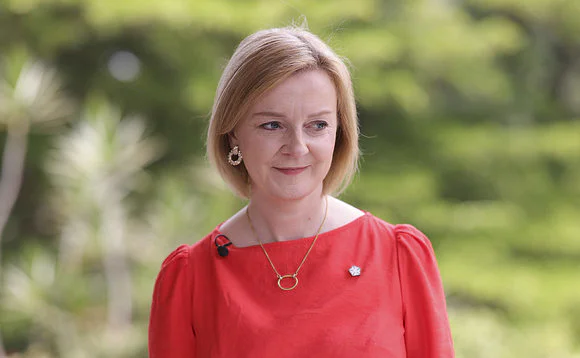The UK government has scrapped plans to cut the corporation tax introduced in the Mini Budget, Prime Minister Liz Truss announced at a press conference today (14 October) in yet another fiscal policy U-turn.
Speaking at a press conference shortly after 2.30pm, she said that it is “clear” that parts of her government’s Mini Budget have gone “further and faster” than expected, adding the government now needs to act “to reassure the markets of our fiscal discipline”.
Therefore, she said the decision has been made to keep the increase in corporation tax, which she said will raise £18bn in taxes for the country.
Read Also: Black Sherif releases first album ‘The Villain I Never was’
In his Mini Budget speech last month, Kwasi Kwarteng had pledged to scrap a corporation tax hike from 19% to 25% which had been scheduled for April next year by Rishi Sunak. The corporation tax cut was one of Liz Truss’ major planks of her Tory leadership campaign.
When asked by a reporter from the Telegraph to explain why she should remain as prime minister, she said: “I am absolutely determined to see through what I promised – to deliver a higher growth, more prosperous United Kingdom to see us through the storm we face.”
Kwasi Kwarteng was removed as Chancellor of the Exchequer today after just 38 days in the post. He has been replaced by Jeremy Hunt, who Truss said will deliver the medium-term fiscal plan at the end of the month.
Kwarteng exits IMF meetings early as U-turn rumours mount
Earlier this morning, expectations of a shift in the UK government’s fiscal plans gave the gilt markets a boost, with the 30-year gilt yield falling 0.24 percentage points to 4.3%.
This is the second U-turn since the government’s £43bn package of unfunded tax cuts was announced. Just last week, the chancellor reversed the proposed scrapping of the 45% rate of income tax for high earners, ten days after it was first unveiled in the Mini Budget.
James Athey, investment director at abrdn, said that despite the U-turn, the UK is “nowhere near out of the woods”.
Mini Budget: ‘The straw that broke the camel’s back’
“The risk now is that investors have forgotten that there are significantly more problems than just an ill-advised and ill-timed fiscal easing to deal with,” he said.
“Inflation is at multi-decade highs, government borrowing is huge as is the current account deficit. The housing market is likely to suffer a hammer blow from the jump in mortgage rates and the war in Ukraine rumbles on.”
On Monday (10 October), Kwarteng told the Treasury Select Committee that he would be bringing the government’s medium-term fiscal plan and accompanying economic forecasts forward from November to 31 October in an attempt to calm the markets.
Source: Investment Week




























